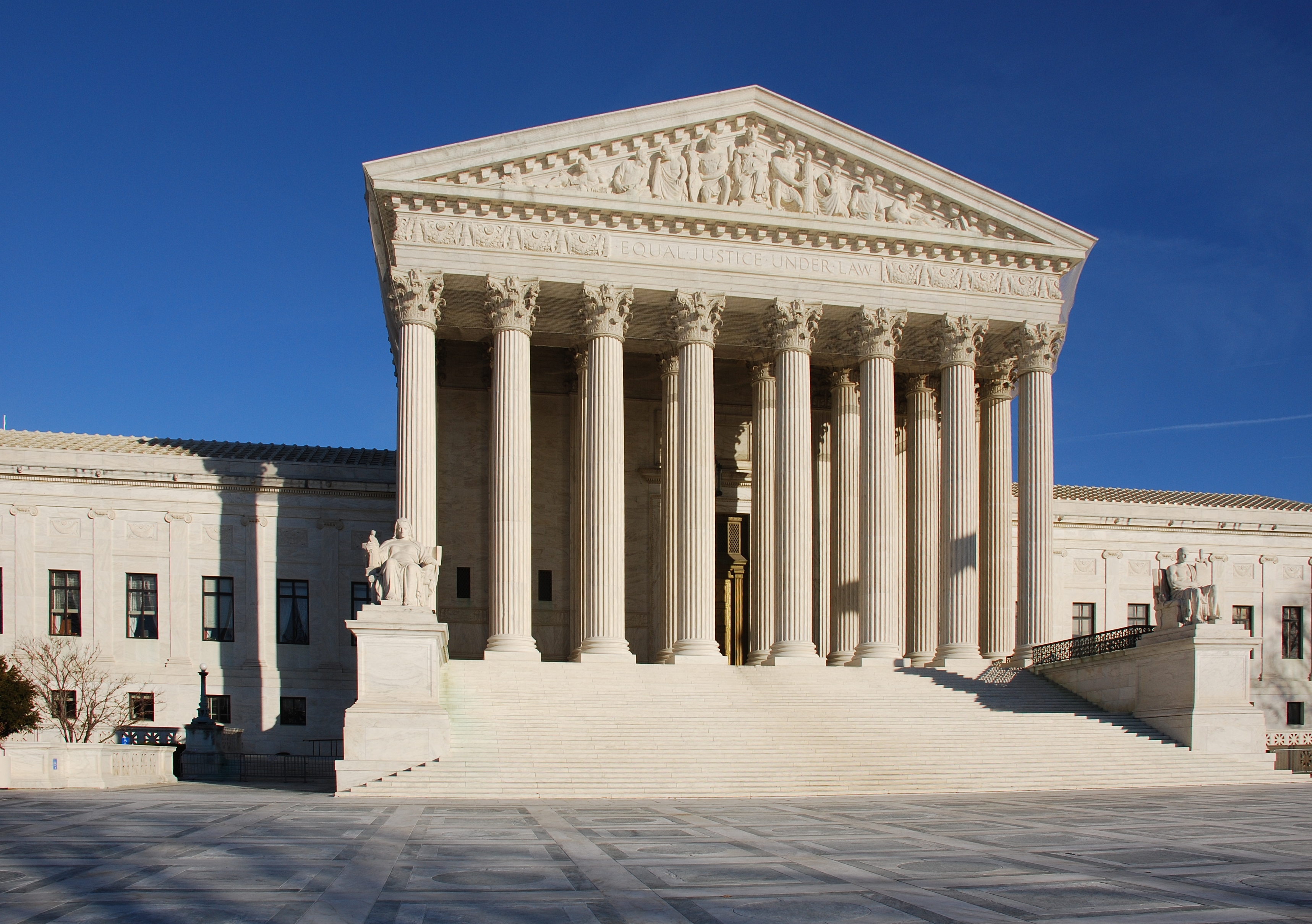|
Claim Rights And Liberty Rights
Some philosophers and political scientists make a distinction between claim rights and liberty rights. A ''claim right'' is a right which entails responsibilities, duties, or obligations on other parties regarding the right-holder. In contrast, a ''liberty right'' is a right which does not entail obligations on other parties, but rather only freedom or permission for the right-holder. The distinction between these two senses of "rights" originates in American jurist Wesley Newcomb Hohfeld's analysis thereof in his seminal work ''Fundamental Legal Conceptions, As Applied in Judicial Reasoning and Other Legal Essays'' (1919). Liberty rights and claim rights are the inverse of one another: a person has a liberty right permitting him to do something only if there is no other person who has a claim right forbidding him from doing so; and likewise, if a person has a claim right against someone else, that other person's liberty is thus limited. This is because the deontic concepts of obl ... [...More Info...] [...Related Items...] OR: [Wikipedia] [Google] [Baidu] |
Philosophy
Philosophy ('love of wisdom' in Ancient Greek) is a systematic study of general and fundamental questions concerning topics like existence, reason, knowledge, Value (ethics and social sciences), value, mind, and language. It is a rational and critical inquiry that reflects on its methods and assumptions. Historically, many of the individual sciences, such as physics and psychology, formed part of philosophy. However, they are considered separate academic disciplines in the modern sense of the term. Influential traditions in the history of philosophy include Western philosophy, Western, Islamic philosophy, Arabic–Persian, Indian philosophy, Indian, and Chinese philosophy. Western philosophy originated in Ancient Greece and covers a wide area of philosophical subfields. A central topic in Arabic–Persian philosophy is the relation between reason and revelation. Indian philosophy combines the Spirituality, spiritual problem of how to reach Enlightenment in Buddhism, enlighten ... [...More Info...] [...Related Items...] OR: [Wikipedia] [Google] [Baidu] |
Legal Rights
Some philosophers distinguish two types of rights, natural rights and legal rights. * Natural rights are those that are not dependent on the laws or customs of any particular culture or government, and so are ''universal'', ''fundamental rights, fundamental'' and ''inalienable'' (they cannot be repealed by human laws, though one can forfeit their enjoyment through one's actions, such as by violating someone else's rights). Natural law is the law of natural rights. * Legal rights are those bestowed onto a person by a given legal system (they can be modified, repealed, and restrained by human laws). The concept of positive law is related to the concept of legal rights. Natural law first appeared in ancient Greek philosophy, and was referred to by Roman philosopher Cicero. It was subsequently alluded to in the Bible, and then developed in the Middle Ages by Catholic philosophers such as Albert the Great, his pupil Thomas Aquinas, and Jean Gerson in his 1402 work "''De Vita Spiritua ... [...More Info...] [...Related Items...] OR: [Wikipedia] [Google] [Baidu] |
Human Rights Concepts
Humans (''Homo sapiens'') or modern humans are the most common and widespread species of primate, and the last surviving species of the genus ''Homo''. They are great apes characterized by their hairlessness, bipedalism, and high intelligence. Humans have large brains, enabling more advanced cognitive skills that facilitate successful adaptation to varied environments, development of sophisticated tools, and formation of complex social structures and civilizations. Humans are highly social, with individual humans tending to belong to a multi-layered network of distinct social groups — from families and peer groups to corporations and political states. As such, social interactions between humans have established a wide variety of values, social norms, languages, and traditions (collectively termed institutions), each of which bolsters human society. Humans are also highly curious: the desire to understand and influence phenomena has motivated humanity's development of ... [...More Info...] [...Related Items...] OR: [Wikipedia] [Google] [Baidu] |
Rule According To Higher Law
The rule according to a higher law is a philosophical concept that no law may be enforced by the government unless it conforms with certain universal principles (written or unwritten) of fairness, morality, and justice. Thus, ''the rule according to a higher law'' may serve as a practical legal criterion to qualify the instances of political or economical decision-making, when a government, even though acting in conformity with clearly defined and properly enacted law, still produces results which many observers find unfair or unjust. Doctrine The idea of a law of ultimate justice over and above the momentary law of the state—a higher law—was first introduced into post-Roman Europe by the Canon law (Catholic Church), Catholic canon law jurists. "Higher law" can be interpreted in this context as the divine law, divine or natural law or basic legal values, established in the international law—the choice depending on the viewpoint; no matter the source, it is a law above the l ... [...More Info...] [...Related Items...] OR: [Wikipedia] [Google] [Baidu] |
Negative And Positive Rights
Negative and positive rights are rights that oblige either inaction (''negative rights'') or action (''positive rights''). These obligations may be of either a legal or moral character. The notion of positive and negative rights may also be applied to liberty rights. To take an example involving two parties in a court of law: Adrian has a ''negative right to x'' against Clay, if and only if Clay is ''prohibited'' to act upon Adrian in some way regarding ''x''. In contrast, Adrian has a ''positive right to x'' against Clay, if and only if Clay is obliged to act upon Adrian in some way regarding ''x''. A case in point, if Adrian has a ''negative right to life'' against Clay, then Clay is required to refrain from killing Adrian; while if Adrian has a ''positive right to life'' against Clay, then Clay is required to act as necessary to preserve the life of Adrian. ''Negative rights'' may include civil and political rights such as freedom of speech, life, private property, freedo ... [...More Info...] [...Related Items...] OR: [Wikipedia] [Google] [Baidu] |
Freedom Versus License
In moral and legal philosophy, there exists a distinction between the concepts of freedom and license. The former deals with the rights of the individual; the latter covers the expressed permission (or lack thereof) for more than one individual to engage in an activity. As a result, freedoms usually include rights which are usually recognized (often, not always, in an unconditional manner) by the government (and access to which is theoretically enforced against any and all interferences). Licenses, on the other hand, are distributed to individuals who make use of a specific item, expressing the permission to use the item or service under specified, conditional terms and boundaries of usage. Related topics *Claim rights and liberty rights *Negative and positive rights Negative and positive rights are rights that oblige either inaction (''negative rights'') or action (''positive rights''). These obligations may be of either a legal or moral character. The notion of positive a ... [...More Info...] [...Related Items...] OR: [Wikipedia] [Google] [Baidu] |
Constitutional Economics
Constitutional economics is a research program in economics and constitutionalism that has been described as explaining the choice "of alternative sets of legal-institutional-constitutional rules that constrain the choices and activities of economic and political agents". This extends beyond the definition of "the economic analysis of constitutional law" and is distinct from explaining the choices of economic and political agents within those rules, a subject of orthodox economics. Instead, constitutional economics takes into account the impacts of political economic decisions as opposed to limiting its analysis to economic relationships as functions of the dynamics of distribution of marketable goods and services. Constitutional economics was pioneered by the work of James M. Buchanan. He argued that "The political economist who seeks to offer normative advice, must, of necessity, concentrate on the process or structure within which political decisions are observed to be made. Ex ... [...More Info...] [...Related Items...] OR: [Wikipedia] [Google] [Baidu] |
Constitutionalism
Constitutionalism is "a compound of ideas, attitudes, and patterns of behavior elaborating the principle that the authority of government derives from and is limited by a body of fundamental law". Political organizations are constitutional to the extent that they "contain institutionalized mechanisms of power control for the protection of the interests and liberties of the citizenry, including those that may be in the minority". As described by political scientist and constitutional scholar David Fellman: Definition Constitutionalism has prescriptive and descriptive uses. Law professor Gerhard Casper captured this aspect of the term in noting, "Constitutionalism has both descriptive and prescriptive connotations. Used descriptively, it refers chiefly to the historical struggle for constitutional recognition of the people's right to 'consent' and certain other rights, freedoms, and privileges. Used prescriptively, its meaning incorporates those features of government se ... [...More Info...] [...Related Items...] OR: [Wikipedia] [Google] [Baidu] |
United States Constitution
The Constitution of the United States is the Supremacy Clause, supreme law of the United States, United States of America. It superseded the Articles of Confederation, the nation's first constitution, on March 4, 1789. Originally including seven articles, the Constitution delineates the frame of the Federal government of the United States, federal government. The Constitution's first three articles embody the doctrine of the separation of powers, in which the federal government is divided into three branches: the United States Congress, legislative, consisting of the bicameralism, bicameral Congress (Article One of the United States Constitution, Article I); the Federal government of the United States#Executive branch, executive, consisting of the President of the United States, president and subordinate officers (Article Two of the United States Constitution, Article II); and the Federal judiciary of the United States, judicial, consisting of the Supreme Court of the Unit ... [...More Info...] [...Related Items...] OR: [Wikipedia] [Google] [Baidu] |
United States Congress
The United States Congress is the legislature, legislative branch of the federal government of the United States. It is a Bicameralism, bicameral legislature, including a Lower house, lower body, the United States House of Representatives, U.S. House of Representatives, and an Upper house, upper body, the United States Senate, U.S. Senate. They both meet in the United States Capitol in Washington, D.C. Members of Congress are chosen through direct election, though vacancies in the Senate may be filled by a Governor (United States), governor's appointment. Congress has a total of 535 voting members, a figure which includes 100 United States senators, senators and 435 List of current members of the United States House of Representatives, representatives; the House of Representatives has 6 additional Non-voting members of the United States House of Representatives, non-voting members. The vice president of the United States, as President of the Senate, has a vote in the Senate ... [...More Info...] [...Related Items...] OR: [Wikipedia] [Google] [Baidu] |
Political Science
Political science is the scientific study of politics. It is a social science dealing with systems of governance and Power (social and political), power, and the analysis of political activities, political philosophy, political thought, political behavior, and associated constitutions and laws. Specialists in the field are political scientists. History Origin Political science is a social science dealing with systems of governance and power, and the analysis of political activities, political institutions, political thought and behavior, and associated constitutions and laws. As a social science, contemporary political science started to take shape in the latter half of the 19th century and began to separate itself from political philosophy and history. Into the late 19th century, it was still uncommon for political science to be considered a distinct field from history. The term "political science" was not always distinguished from political philosophy, and the modern dis ... [...More Info...] [...Related Items...] OR: [Wikipedia] [Google] [Baidu] |
Justice
In its broadest sense, justice is the idea that individuals should be treated fairly. According to the ''Stanford Encyclopedia of Philosophy'', the most plausible candidate for a core definition comes from the ''Institutes (Justinian), Institutes'' of Justinian I, Justinian, a 6th-century codification of Roman law, where justice is defined as "the constant and perpetual will to render to each his due". A society where justice has been achieved would be one in which individuals receive what they "deserve". The interpretation of what "deserve" means draws on a variety of fields and philosophical branches including ethics, rationality, law, religion, and fairness. The state may pursue justice by operating courts and enforcing their rulings. History Early Western theories of justice were developed in part by Ancient Greek philosophers such as Plato in his work ''Republic (Plato), The Republic'', and Aristotle, in his ''Nicomachean Ethics'' and ''Politics (Aristotle), Politics'' ... [...More Info...] [...Related Items...] OR: [Wikipedia] [Google] [Baidu] |








